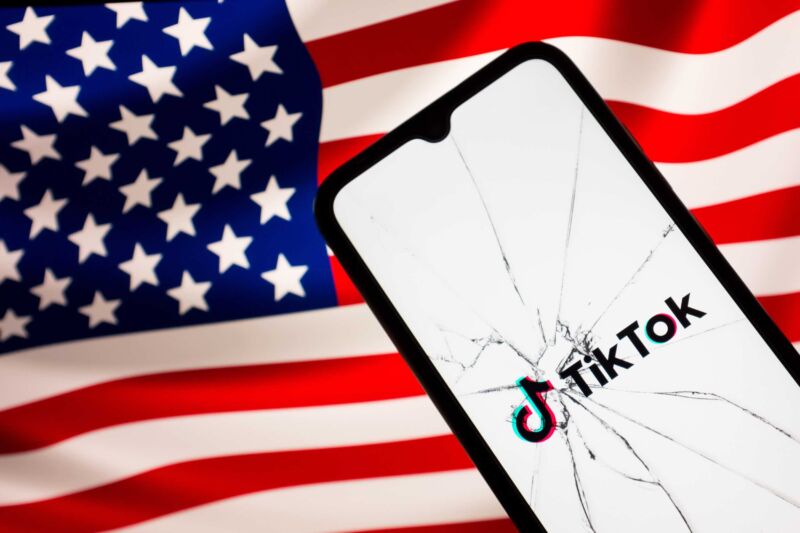TikTok owner has strong First Amendment case against US ban, professors say

TikTok owner ByteDance is preparing to sue the US government now that President Biden has signed into law a bill that will ban TikTok in the US if its Chinese owner doesn’t sell the company within 270 days. While it’s impossible to predict the outcome with certainty, law professors speaking to Ars believe that ByteDance will have a strong First Amendment case in its lawsuit against the US.
One reason for this belief is that just a few months ago, a US District Court judge blocked a Montana state law that attempted to ban TikTok. In October 2020, another federal judge in Pennsylvania blocked a Trump administration order that would have banned TikTok from operating inside the US. TikTok also won a preliminary injunction against Trump in US District Court for the District of Columbia in September 2020.
“Courts have said that a TikTok ban is a First Amendment problem,” Santa Clara University law professor Eric Goldman, who writes frequent analysis of legal cases involving technology, told Ars this week. “And Congress didn’t really try to navigate away from that. They just went ahead and disregarded the court rulings to date.”
The fact that previous attempts to ban TikTok have failed is “pretty good evidence that the government has an uphill battle justifying the ban,” Goldman said.
TikTok users engage in protected speech
The Montana law “bans TikTok outright and, in doing so, it limits constitutionally protected First Amendment speech,” US District Judge Donald Molloy wrote in November 2023 when he granted a preliminary injunction that blocks the state law.
“The Montana court concluded that the First Amendment challenge would be likely to succeed. This will give TikTok some hope that other courts will follow suit with respect to a national order,” Georgetown Law Professor Anupam Chander told Ars.
Molloy’s ruling said that without TikTok, “User Plaintiffs are deprived of communicating by their preferred means of speech, and thus First Amendment scrutiny is appropriate.” TikTok’s speech interests must be considered “because the application’s decisions related to how it selects, curates, and arranges content are also protected by the First Amendment,” the ruling said.
Banning apps that let people talk to each other “is categorically impermissible,” Goldman said. While the Chinese government engaging in propaganda is a problem, “we need to address that as a government propaganda problem, and not just limited to China,” he said. In Goldman’s view, a broader approach should also be used to stop governments from siphoning user data.
TikTok and opponents of bans haven’t won every case. A federal judge in Texas ruled in favor of Texas Governor Greg Abbott in December 2023. But that ruling only concerned a ban on state employees using TikTok on government-issued devices rather than a law that potentially affects all users of TikTok.
Weighing national security vs. First Amendment
US lawmakers have alleged that the Chinese Communist Party can weaponize TikTok to manipulate public opinion and access user data. But Chander was skeptical of whether the US government could convincingly justify its new law in court on national security grounds.
“Thus far, the government has refused to make public its evidence of a national security threat,” he told Ars. “TikTok put in an elaborate set of controls to insulate the app from malign foreign influence, and the government hasn’t shown why those controls are insufficient.”
The ruling against Trump by a federal judge in Pennsylvania noted that “the Government’s own descriptions of the national security threat posed by the TikTok app are phrased in the hypothetical.”
Chander stressed that the outcome of ByteDance’s planned case against the US is difficult to predict, however. “I would vote against the law if I were a judge, but it’s unclear how judges will weigh the alleged national security risks against the real free expression incursions,” he said.
Montana case may be “bellwether”
There are at least three types of potential plaintiffs that could lodge constitutional challenges to a TikTok ban, Goldman said. There’s TikTok itself, the users of TikTok who would no longer be able to post on the platform, and app stores that would be ordered not to carry the TikTok app.
Montana was sued by TikTok and users. Lead plaintiff Samantha Alario runs a local swimwear business and uses TikTok to market her products.
Montana Attorney General Austin Knudsen appealed the ruling against his state to the US Court of Appeals for the 9th Circuit. The Montana case could make it to the Supreme Court before there is any resolution on the enforceability of the US law, Goldman said.
“It’s possible that the Montana ban is actually going to be the bellwether that’s going to set the template for the constitutional review of the Congressional action,” Goldman said.
https://arstechnica.com/?p=2020276